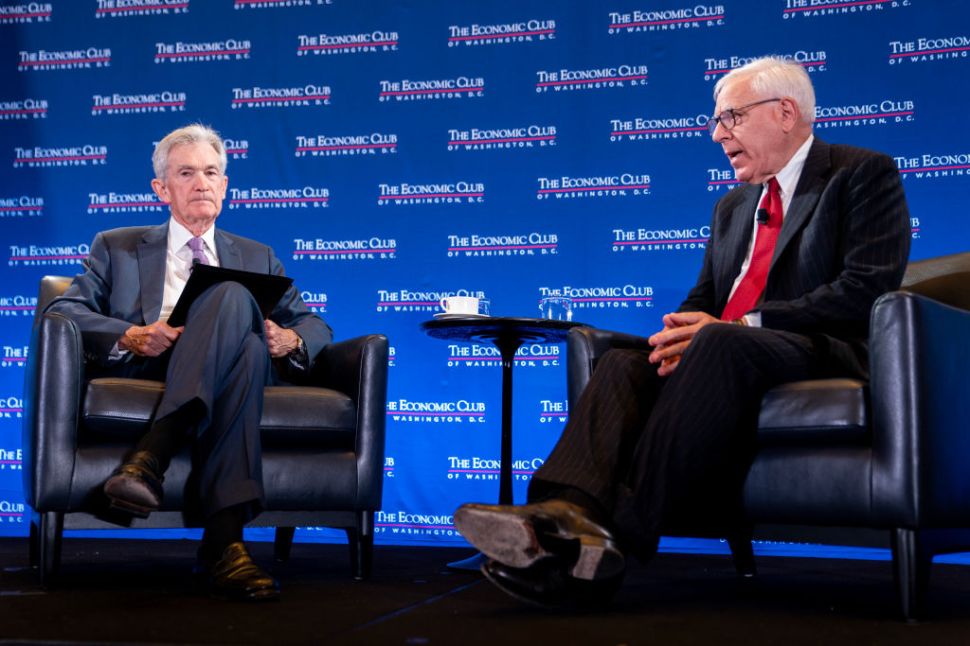Jerome Powell Participates In Economic Club Interview” width=”970″ height=”647″ data-caption=’Jerome Powell speaks during an interview with David Rubenstein for The Economic Club at the Marriott Marquis on July 15, 2024 in Washington, D.C. <span class=”lazyload media-credit”>Getty Images</span>’>
Before leading the Federal Reserve, Jerome Powell had a career on and off Wall Street spanning nearly three decades. Among the handful of people who worked closely with him for an extended period was David Rubenstein, the founder of the Carlyle Group (CG). Speaking at a conference last week, Rubenstein described Powell as “a nice guy, a lawyer by training—not an investment banker, not an economist,” and credited this background for his success as Fed chair.
“He explains what he’s going to do before he does it, which many Fed chairs didn’t do,” Rubeinstein said during an onstage interview at Semafor’s World Economy Summit in Washington D.C. on Friday (April 25). “When Paul Volcker and Alan Greenspan were chairs, they would take action, and you had to figure out later what they really did, because they didn’t have press conferences.”
The tradition of the Fed hosting press conferences after Federal Open Market Committee (FOMC) meetings started with former Fed chair Ben Bernanke in 2011. Powell has expanded the practice—now briefing the press after every FOMC meeting—the committee meets eight times a year—in an effort to improve transparency and communication around monetary policy.
Powell was a partner at Carlyle from 1997 to 2005, leading a U.S. buyout fund. After leaving the private equity firm, he founded Severn Capital Partners before returning to public service in 2012 as a member of the Federal Reserve Board of Governors, nominated by former President Barack Obama. He assumed the role of chair in 2018.
Powell recently made headlines after President Donald Trump threatened to fire him—a threat Trump later walked back. The President has criticized the Fed’s interest rate policies and Powell’s warnings that tariffs would drive higher inflation.
Rubenstein praised Powell’s calm in the face of such attacks. “One of the things he’s done very well is not responding to criticism,” he said, then turned to the audience and asked, “How many of you here would like to be beat up by the leader of the free world and just not say anything in your defense?”
“Jay has been very good at basically keeping his head down, not criticizing anybody who’s criticizing him, and just dealing with the problems that the Fed sees,” he added. “I think he’s got the confidence of the [Fed] board and the confidence of the people setting interest rates.”
Powell is widely respected across Washington and Wall Street for his steady leadership during the Covid-19 pandemic—cutting interest rates to near zero, launching massive bond-buying program and supporting emergency lending facilities. While criticized for a slow response to post-pandemic inflation, Powell course-corrected rapidly, hiking interest rates at the fastest pace in four decades while successfully avoiding a recession.

